Over eleven years of conflict has shaken Syria’s foundations to the point of humanitarian catastrophe. In the north of the country, where the infrastructure of local services has already been devastated, Monday’s earthquake could not have hit harder.
For many, the initial tremors of the earthquake were interpreted not as a natural disaster, but as the horribly familiar; bombs falling from planes overhead. It is estimated that from 2012-2021, nearly 82,000 barrel bombs were dropped1. These airstrikes do not only live on via the trauma in people’s minds, they continue to shatter lives and communities through the destruction of buildings. In Aleppo, buildings damaged by the war will often collapse. It was only last month that 13 people died as one crumbled2.
Ravaged by extreme poverty, economic crisis, food shortages, a recent cholera outbreak, it was hard to imagine how things could get much worse. Even before this disaster, 14.6 million people were in need of humanitarian aid3. Now this number will increase dramatically. The road to recovery will be long and challenging, but with your help and generosity we will be there to enable our partners to deliver aid beyond the immediate aftermath of the earthquake.
90% of the population lived in poverty4, 2 million lived in informal settlements without any access to basic services5, and outbreaks of waterborne diseases like cholera put millions at risk6. Only the week before the earthquake, the World Food Programme announced that food insecurity was the worst it had ever been since the onset of war7.
In spite of this, international support for Syria falls woefully short. In 2022, of the £3.7bn needed by the UN to meet increasing requirements, less than half was received8. This is why Hands Up has continued to work tirelessly to provide funds for vital health and education services since 2014. We want our friends in Syria to know that we have not forgotten them and that we will do everything we can to support them and raise awareness of their situation.
A divided political map, with multiple oppositions and ruling groups, Syria presents a complex humanitarian landscape. Providing aid here requires operating across multiple political minefields, and now earthquake damaged terrain, but it is possible. With the expertise and experience of our partners on the ground we are continuing to provide aid to people in extreme need.
In 2014, the UN provided aid to Syrian opposition areas through four border crossings; the Ramtha border (crossing with Jordan), the Yarabiya border (crossing with Iraq), the Bab al-Salam border and the Bab al-Hawa border (both crossings with Turkey). By 2020, the authorisation of three of these had expired, leaving the only entry point for UN aid through Bab al-Hawa in north west Syria. Although it remained possible for our partners to bring supplies in through the Turkish border in some areas of Syria, under Turkish control (e.g. Tel Abyad), this did not apply for UN aid supplies.
In 2022, the UN Security Council reduced the length of aid delivery authorisations from twelve to six months. This decision came as a result of attempts to avoid a Russian veto which would have seen the closure of all borders and the monopolised delivery of aid to all of Syria via the Syrian regime. There are reports of the regime using aid as a chess piece by withholding it from areas of opposition9. Russia’s stance acts as a move to support the sovereignty of the Syrian regime, viewing the provision of aid as having the potential to undermine the government’s rule.
Now, the Bab Al-Hawa route has been damaged by the earthquake, adding further cracks to the system on which north-west Syria relied for aid. Earlier this week, the news that two further border crossing points were to be opened by the Syrian regime, was welcomed by the international community. The UN secretary general, Antonio Guterres, said these two crossing points (at Bab al-Salam and Al Ra’ee, between Turkey and north-west Syria), would be opened for “an initial period of three months to allow for the timely delivery of humanitarian aid”10.
Guterres said “Opening these crossing points – along with facilitating humanitarian access, accelerating visa approvals, and easing travel between hubs – will allow more aid to go in, faster.”10 In a country where an estimated 5.3 million people will be left homeless11, and over 5,800 have already died12, this could not be of greater importance.
Yes. So far, we have committed £80k to two of our long-term partners, the Syrian American Medical Society (SAMS) and Physicians Across Continents (PAC). The situation is still fast- moving and we are in constant contact to understand the key needs on the ground. With their expertise and experience, we are working to ensure life-saving equipment and services can get to where they are desperately needed across affected areas in the north-west and north-east of Syria, as well as in Turkey. Funds are being used for medical equipment for post-traumatic critical care (e.g. dialysis kits), baby milk for orphans or mothers who are unable to breastfeed, lab consumables (e.g. syringes), orthopaedic consumables (e.g. surgeons’ drills) and salaries for medical staff. With our partners’ guidance we are working swiftly to commit additional funding to further essential needs and will continue to update you.
This morning we were delighted to receive an update from PAC, telling us how our funding is directly supporting orphans and mothers unable to breastfeed; PAC has provided 8 locations in north-west Syria, such as Al Bab, Armanaz, and Darkush, with 3,000 baby milk cartons and the equipment needed to give this to babies (cups, kettle, measuring bowl). This nutrition will give these babies a fighting chance at life and provide support for their mothers.
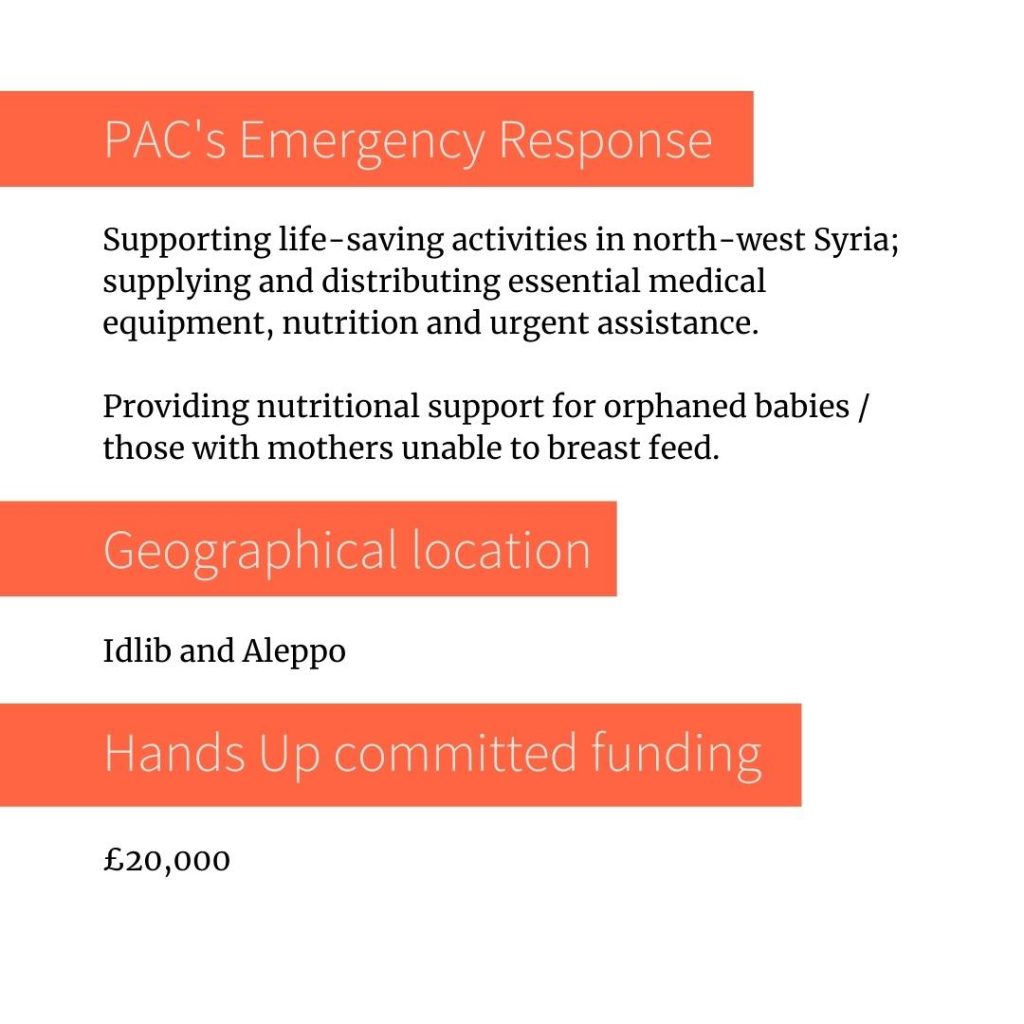
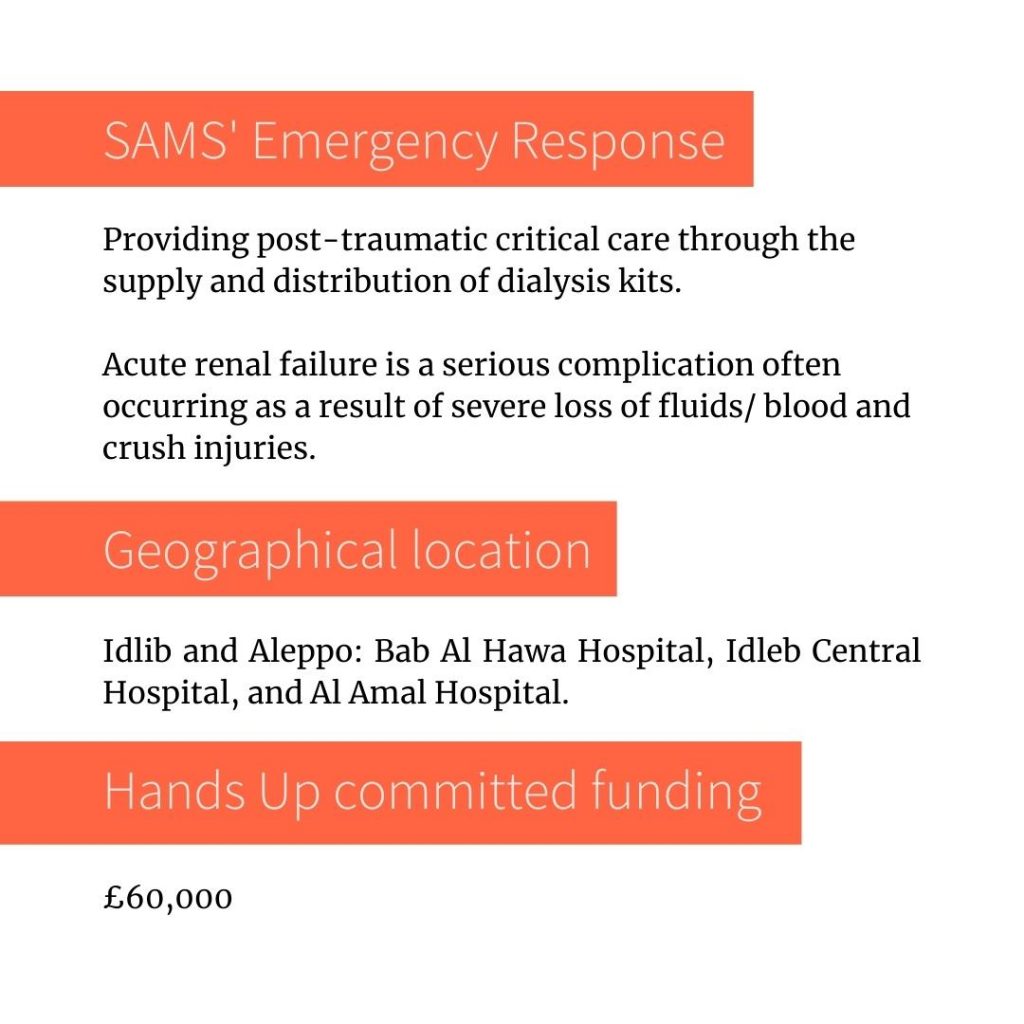
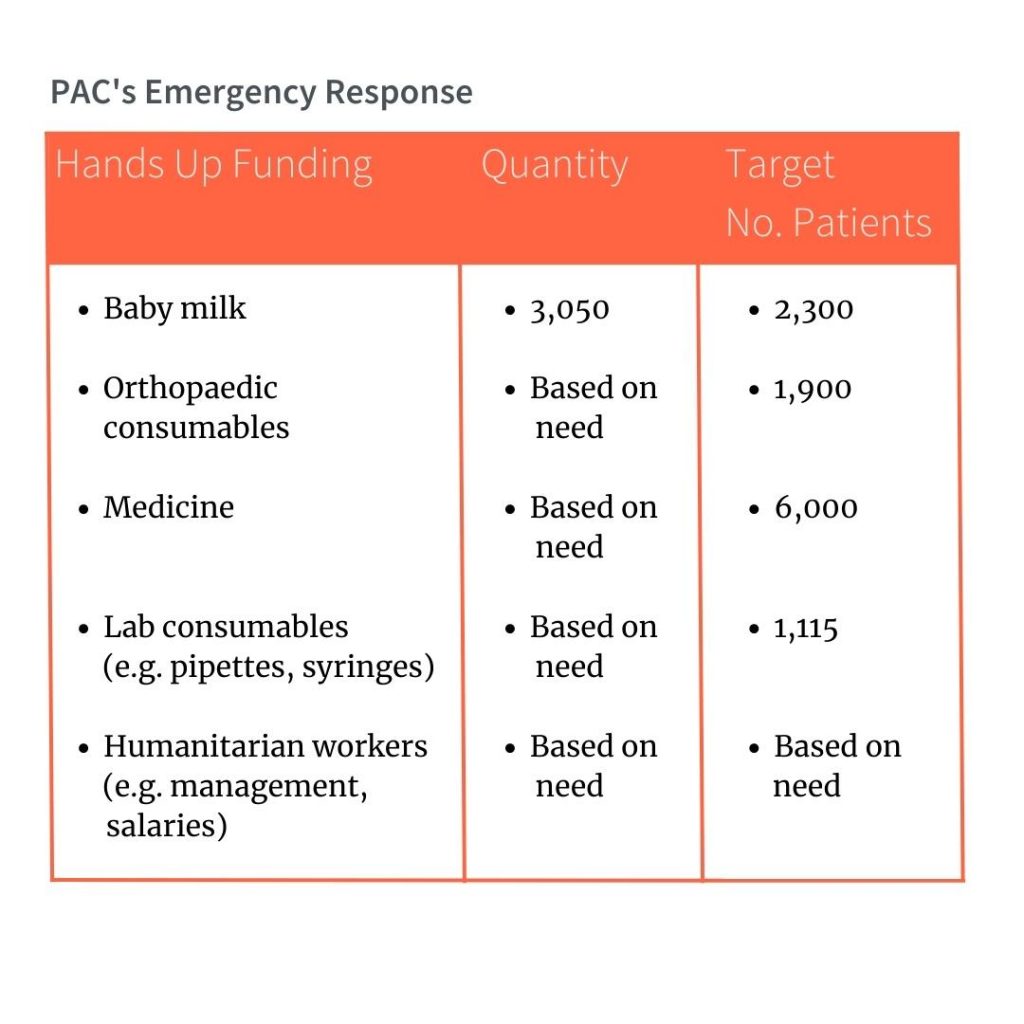
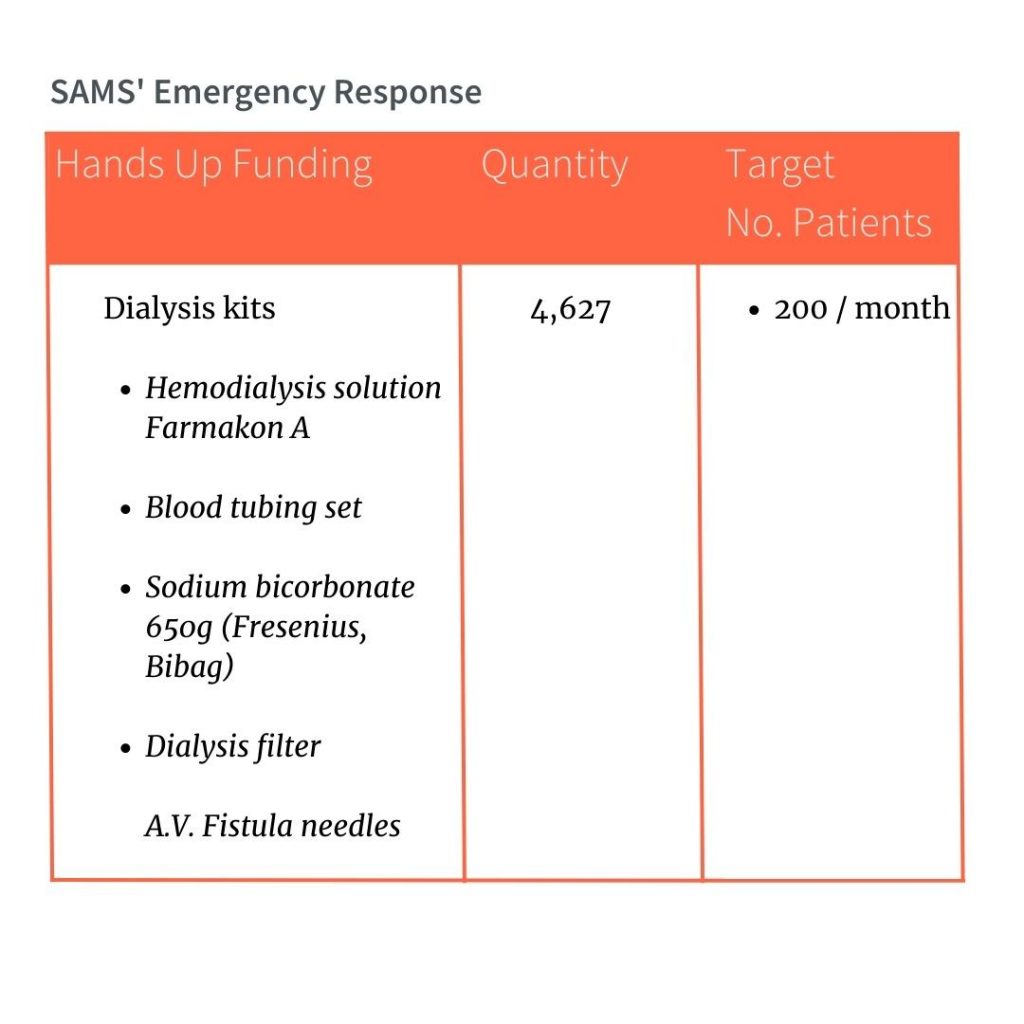
Having worked with our Syrian partners in this part of the world for nearly a decade, we know how devastating this earthquake is for what was already a catastrophic humanitarian situation. “A crisis within a crisis within a crisis”, as BBC Chief International Correspondent, Lyse Doucet, called it13. The disasters which have hit this country will make the situation for millions of Syrians even harder to recover from. With things on the ground still changing and the death toll rising rapidly, the full extent of the destruction is unknown.
What we do know is that with your help, we can be there to support our partners, providing vital health and education services to their communities. Tragically, there is no quick fix. Instead, we aim to help our partners to nurture a healthy, educated community, strengthening stability and crucially, building back hope.
If you haven’t already, please donate now.
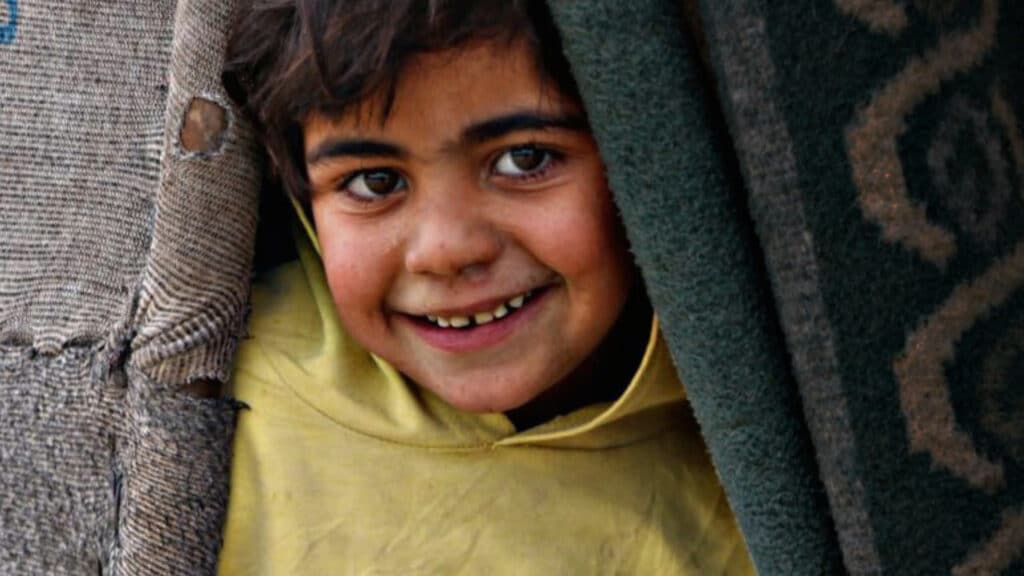
Keeping supporters clued up on our work is important to us. Sign up to keep up to date with where the funds go and the impact they have, and how you can support us.